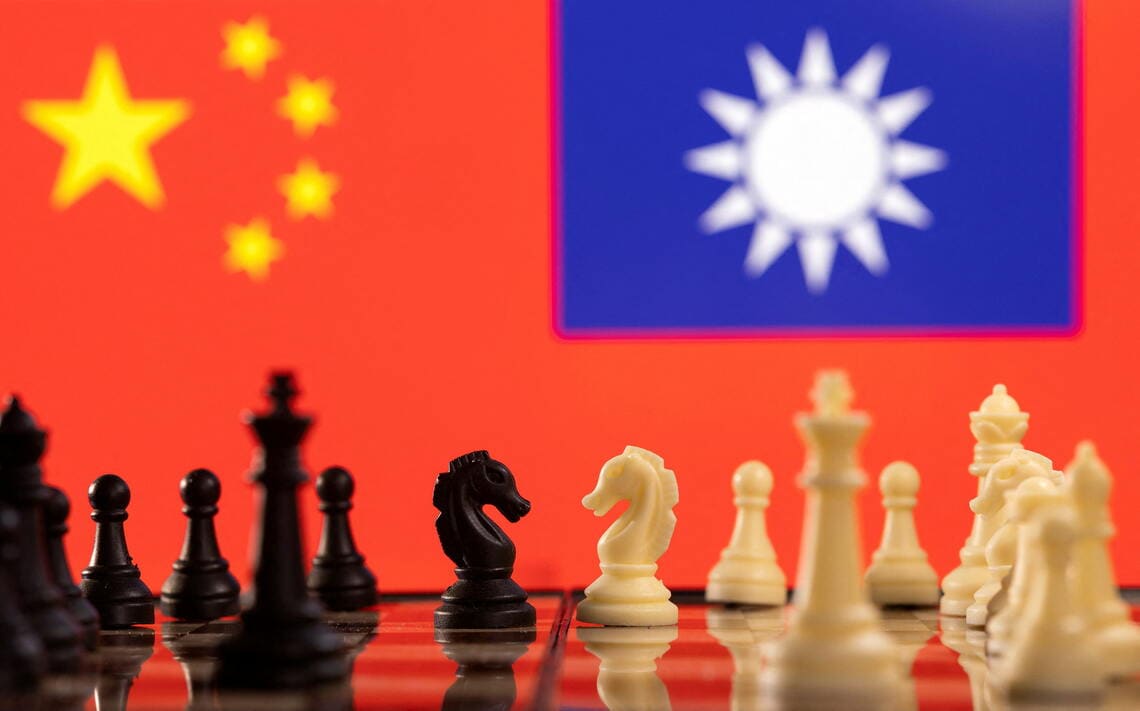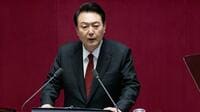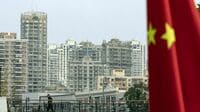
――You have discussed the concept of "Peak China" and believe that China has already reached its peak. Could you elaborate on your thoughts regarding the decline of China's national power?
China has two major problems. First is economic stagnation, because many of the advantages that helped it achieve such rapid growth for so many years have now turned into disadvantages. China confronts a major demographic crisis that will shrink its labor force, and confronts scarcity of key resources like arable land and usable water. Its political system is becoming more closed and totalitarian, which is stifling the creativity needed for growth.
And China no longer has a world that is welcoming of its rise as it did in the 1990s and 2000s. If you put all that together, China will struggle to maintain the rates of growth, or anything like the rates of growth that it did in the 2000s or even the 2010s and it will have difficulty overtaking the United States as the world's largest economy.
At the same time, China is facing strategic encirclement, and more and more countries throughout the region and beyond are looking to find ways of pushing back against Chinese assertiveness. That's true if you look at the US-Japan alliance, if you look at AUKUS or the G7 programs to combat Chinese economic coercion, everywhere China is pushing more and more countries are pushing back. So China is beyond the point where it will achieve its easiest economic growth and international influence.
The challenge is that when this happens, states often become more aggressive, they often decide to try to lock in gains while they still can. And China will have a very attractive window of military opportunity to do so during the second half of this decade, because it'll be competing in its current round of military forms, and will have an advantageous balance of power in the western Pacific.

――In your writing, you mentioned that the most likely form of war would begin with thousands of missiles launched from land and air towards the main island of Taiwan, U.S. military bases in Okinawa and Guam, and the U.S. aircraft carrier strike group based in Japan. Yokosuka and Okinawa are clearly part of Japanese territory. Should we be prepared for this to become a "most plausible scenario," where many Japanese lives would be at stake?
Yes. If China decides to attack Taiwan, it will have difficulty prevailing against the United States unless it strikes US bases and military assets that are located on Japanese territory or in Japanese ports. And if a war like this begins, I think it is all too likely that Japan will be involved.
Another aspect of this is that the loss of Taiwan to China would pose a serious threat to Japan Southwestern Islands to the shipping lanes that Japan depends on, and it would turn the region into an environment that be much more hostile to Japanese security and prosperity. I would argue that Japan has a compelling national interest in preventing a Chinese takeover of Taiwan, even if its own territory is not struck.
A DPP victory would be a political earthquake in Taiwan
――On the other hand, since Xi Jinping is sure to enter his fourth term, some believe that there is no need to dare to create a Taiwan contingency. There is also a possibility that the DPP, which has a pro-U.S. line and distances itself from China, will win the Taiwan presidential election in January 2024. How do you respond to those thoughts? What do you make of those thoughts?
These are factors that make me concerned about the second half of the 2020s as a particularly dangerous period. If the DPP wins Taiwan's next presidential election that would be a political earthquake in Taiwan, because no party has won the presidency, three consecutive times since Taiwan moved towards democracy. And it might very well indicate to Xi Jinping and the people around him that the road to peaceful but coerced unification is closed, that China is unable to shift the trajectory of Taiwanese politics in a way that would empower the KMT or other political actors who are more inclined to at least discussing peaceful unification with Beijing.
That's one factor. The second factor is that Xi Jinping has made clear that Taiwan is down from generation to generation. Many people believe he's referring to the fact that it shouldn't be passed down to the next generation of Chinese leaders, in other words, that he would like to accomplish unification on his watch. And when you put those political issues together with the military and economic issues, it makes me very concerned about the second half of this decade.
――You also point to the digital revolution as the key reason for the most serious attack on the ideological side of China. How do you see China's chances of winning in the future in areas such as generative AI, quantum computers, and semiconductors? And in these technological hegemony struggles, should the West create an export control alliance, called a mini-Cocom?
Technological superiority or at the very least technological superiority in key areas is an important part of Chinese policy under Xi Jinping. China is making major state directed investments in quantum and AI in synthetic biology and other fields, meant to give it an economic and military advantage in the coming decades.
The danger in my view is not that China will establish an overall technological superiority over the United States and its allies. The danger is China will control technological choke points. It will perhaps be able to leap ahead in particular areas where it makes major investments while the United States is looking elsewhere and will thereby be able to achieve leads as a matter of great deal to the geopolitical rivalry.
So yes, I think the United States and its allies need to take a more assertive approach and the technological rivalry that will involve export controls like the controls we saw placed on advanced semiconductors and semiconductor manufacturing equipment last October.
It will also involve efforts to slow down China's global 5G rollout through Huawei and ZTE. It will likely involve controls on US investments and Chinese firms that are making big plays in these areas. We don't need a sort of full scale technological decoupling between the United States and China. I don't think that's possible. And I don't think it would be wise. But I do think the United States and its allies will need to move more proactively to protect their advantages in the areas that matter most too economic and military power.
The Chinese government is getting clearly nervous
――As digital technology is getting core of national competition, Alibaba group was split off to 6 departments as the way they yielded to the government of Xi in effect. How does it affect the Chinese economy?
The Chinese government has been conducting, essentially, a crackdown on key parts of the Chinese tech sector. It's part of Xi Jinping's effort to exert greater political control over the system over the economy, even at the expense of some degree of economic dynamism and economic growth.
Xi Jinping has made clear that he places national security above rapid fire economic growth and above its difference than many Chinese leaders did during the 1990s and 2000s. And he's increasingly concerned with ensuring his ideological control of the system as well. And so this is part and parcel of a larger move by Xi Jinping and his government to exert greater control over key sectors of the Chinese economy.
――Are there any significant recent changes in the situation in China that we should be concerned about since you published your book in August of 2022? While Xi Jinping is entering his third term, the slowdown in the Chinese economy is becoming more noticeable.
Yes, Xi Jinping firmly entrenched himself in power at the Party Congress last October. He also managed to ensure that all of his loyalists were in key positions, and he reworked the Central Military Commission to look like what one Japanese colleague described to me as a war council, which features people with experience in China's last major military campaign in Vietnam, in the late 1970s, as well as people with experience in the military district, opposite Taiwan.
We also have seen, as you mentioned, the more pronounced economic slowdown, which is clearly making the Chinese government nervous even though Xi Jinping has downgraded the pursuit of growth at all costs.
I'd also point out there are, there is rather increasingly dire and bellicose rhetoric emerging from China. Xi Jinping said that the United States is intent on containing and suppressing China. He has warned of high winds, heavy seas and even dangerous storms ahead. These are generally phrases that are generally interpreted to refer to the risk of armed conflict with the United States.
――In November 2022, U.S. President Biden and Chinese President Xi Jinping met in Bali, Indonesia. Also, in mid-June 2023, U.S. Secretary of State Antony Blinken traveled to Beijing to meet with Politburo member Wang Yi, who oversees foreign affairs, followed by a meeting with President Xi Jinping. How does it work against the current tense situation?
Well, I think these visits in one sense are very important because they create opportunities for dialogue, they can help create a process of discussion. But the reality is that none of these discussions are going to meaningfully alter the fact that the basic interests of the two countries are in conflict over Taiwan, over technological leadership over the future balance of power, and the Asia Pacific and globally. Any sort of diplomatic calm that emerges from these meetings will be very vulnerable to disruption as we saw with the balloon incident in January. And it will only really provide a temporary respite in this larger competition.
――How do you evaluate the role of Prime Minister Kishida in Japan, who hosted the G7 summit in Hiroshima in May?
I think the Prime Minister played a very important role in the development of Japanese and free-world policies toward China over the past year. As one acquaintance described to me, he has pushed forward with a number of policies that were initially proposed under former Prime Minister's Abe without a lot of controversy that accompanied those reforms when Abe proposed them.
The Kishida government has pushed through plans for a significant increase in Japanese defense spending and for closer cooperation with the United States along the southwestern island chain. It is playing an increasingly important role in the technological rivalry with China and in blunting Chinese economic coercion. I think Japan has emerged as America's most important ally in the 21st century. That's true under a variety of Japanese leaders, but he certainly under the Prime Minister.



